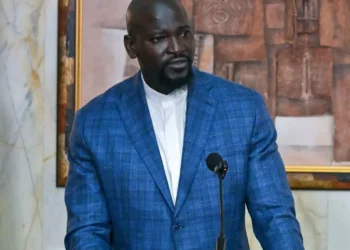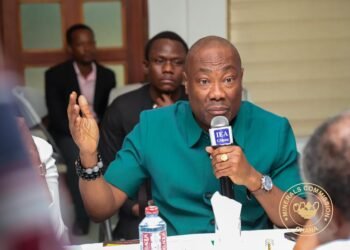Ghana’s debt situation continues to draw global attention as the International Monetary Fund (IMF), in its latest Fourth Review under the Extended Credit Facility (ECF) Programme, declared the country’s public debt sustainable but still classified Ghana as being at high risk of debt distress.
The announcement presents a paradox that, while Ghana appears to be on a long-term path to stability through ongoing debt restructuring efforts, it remains in a fragile position in the near term due to breaches in key debt sustainability thresholds.
The IMF’s review confirms that the recent completion of Ghana’s Eurobond exchange and progress with the Official Creditor Committee (OCC) have contributed positively to the country’s debt outlook. Yet, the Fund cautions that significant vulnerabilities remain, particularly in the short term, where multiple indicators signal risks that could derail the economic recovery process.
Debt Restructuring Progress Offers a Ray of Hope
According to the IMF, Ghana’s baseline scenario incorporates a comprehensive post-restructuring macroeconomic framework. This includes the domestic debt exchange, treatment of bilateral debts through agreements with the OCC, and assumptions for handling the remaining external commercial debts.
These steps are crucial to aligning Ghana’s debt with the comparability of treatment (CoT) principle required by international debt resolution standards.
The Fund noted that if the current trajectory continues, Ghana could move from a high to a moderate risk of debt distress by the end of 2028. This projection is based on expectations that all debt indicators will fall below their respective thresholds under the current baseline by then. Furthermore, international reserves are forecast to rise, reaching around 3.0 months of import cover by the conclusion of the ECF programme.
Despite the long-term optimism, the IMF’s review paints a concerning picture of Ghana’s near-term fiscal performance. The Fund revealed that the country’s public finances deteriorated significantly in the lead-up to the 2024 elections, with provisional data pointing to a widening of fiscal imbalances.
While revenue performance was broadly in line with projections, the primary balance on a commitment basis recorded a deficit of 3.3% of GDP, starkly contrasting the programmed surplus of 0.5%.
The main culprit behind this fiscal slippage was a net accumulation of unpaid bills or payables, tentatively estimated at around 2.6% of GDP. These figures highlight the challenges the government faces in controlling spending during politically sensitive periods.
Sustainability Comes at a Price
The IMF’s statement reflects a broader dilemma for countries like Ghana undertaking debt restructuring while facing domestic fiscal pressures. On one hand, restructuring external debt brings temporary relief and the possibility of long-term sustainability. On the other, failure to maintain fiscal discipline — especially in election years — threatens to erode these hard-earned gains.
Ghana’s high debt-to-GDP ratio, coupled with weak revenue mobilization and election-related spending, continues to limit the fiscal space necessary to stimulate growth or make crucial social investments. Until macroeconomic discipline is fully restored, the debt sustainability gains remain fragile and reversible.
Moving from a high to moderate debt distress risk by 2028, as forecast by the IMF, will require Ghana to implement and sustain a wide range of reforms. These include tightening expenditure controls, boosting domestic revenue collection, reducing reliance on short-term borrowing, and ensuring transparent implementation of restructuring agreements.
Additionally, Ghana’s authorities will need to restore market confidence by maintaining policy credibility and resisting the urge to overspend in politically charged times. The IMF has reiterated its commitment to supporting Ghana in this effort but emphasized that much depends on the country’s domestic policy choices.
Ghana’s current debt situation is a tightrope walk between optimism and caution. While international debt restructuring efforts provide some breathing room, the country’s vulnerability to fiscal shocks remains pronounced.
As 2028 looms on the horizon as a potential turning point, Ghana must demonstrate discipline, transparency, and commitment to reforms to avoid slipping back into unsustainable territory.



















